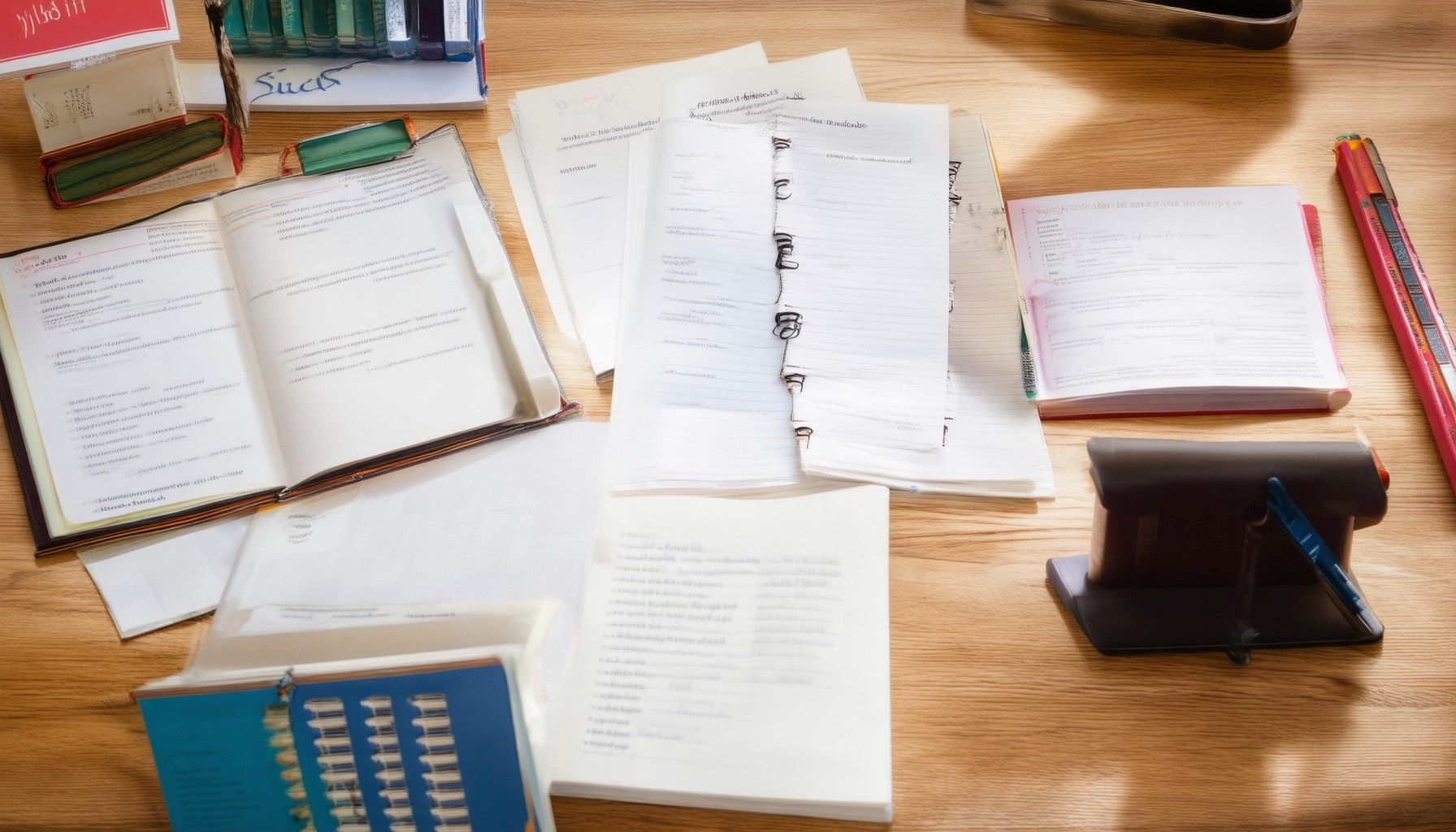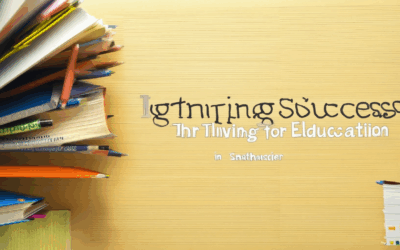Studying effectively can feel like an uphill battle when life gets busy, but discovering the right study techniques can transform your approach. Whether you’re a student juggling multiple subjects or someone looking to enhance your learning process, understanding the best study techniques can make a significant difference. From improving focus to boosting productivity, effective study strategies are essential for success. In this article, we delve into the latest insights from educational articles, scholarly studies, and expert recommendations to uncover the most effective study techniques. By exploring methods that align with modern learning principles, you’ll gain practical tips to streamline your study routine and achieve better results. Let’s dive into the world of study habits, study skills, and the techniques that truly work.
To enhance study efficiency and concentration, consider integrating the following study techniques, each tailored to individual learning preferences and needs:
- Active Recall: Test yourself regularly to reinforce memory and retention, leveraging active engagement with material.
- Spaced Repetition: Review notes at increasing intervals to allow gradual absorption and longer-term retention, avoiding cramming.
- Pomodoro Technique: Structure study sessions into focused 25-minute intervals with 5-minute breaks to maintain concentration and prevent burnout.
- Mindfulness and Relaxation: Practice deep breathing or meditation before studying to reduce stress and enhance focus.
- Interleaved Practice: Mix diverse topics within a session to maintain engagement and foster connections between concepts.
- Set Clear Goals: Define specific objectives for each study session to boost motivation and track progress effectively.
- Eliminate Distractions: Create a dedicated study environment free from noise and use apps to block distracting websites.
- Stay Organized: Utilize planners or digital calendars to schedule study sessions and manage tasks, promoting accountability.
- Chunking: Break complex information into smaller, manageable parts for easier absorption and retention.
- Mind Mapping: Visualize hierarchical relationships between concepts to enhance understanding and retention.
- Teach Others: Reinforce understanding by explaining concepts aloud or to oneself, aiding in retention.
- Priority Sorting and Calendar Planning: Organize tasks by urgency and importance, and map out study schedules to avoid last-minute stress.
- Active Learning Methods: Engage deeply with material through interactive note-taking and teaching concepts to others.
- Elaboration: Connect new information with prior knowledge by asking “why” and “how” questions to deepen understanding.
- Analogies and Metaphors: Relate new information to familiar concepts for better relatability and comprehension.
- Use Technology Wisely: Employ apps for note-taking and task management, while limiting screen time to avoid distraction.
- Join Study Groups: Collaborate with peers for new perspectives and accountability, enhancing learning experiences.
- Sleep and Rest: Prioritize adequate sleep for memory consolidation and optimal cognitive function.
- Seek Help When Stuck: Don’t hesitate to ask for clarification or advice to address challenges promptly.
Conclusion: Tailor these techniques to personal learning styles, allowing flexibility and balance with breaks and self-care. Consistency and adaptability are key to reaping the full benefits of these strategies, leading to improved concentration and effective learning outcomes.
What Are the Best Study Techniques for Improving Focus and Productivity?
Improving focus and productivity during study sessions requires a combination of effective techniques, organization, and consistent habits. Here are some proven strategies to enhance your learning and efficiency:
1. Implement Time Management Tools
Use tools like planners or digital calendars to allocate specific blocks of time for studying. Prioritize tasks based on deadlines and importance, focusing on high-impact activities first.
2. Practice Active Learning
Engage with material actively rather than passively reading. Techniques include teaching concepts to others, using flashcards, or applying knowledge through problem-solving exercises.
3. Organize Your Study Space
Create a dedicated, quiet, and comfortable study environment. Remove distractions and keep your supplies organized to minimize interruptions.
4. Utilize Memory Techniques
Apply memory-enhancing strategies such as chunking (breaking information into smaller parts), the Pomodoro Technique (25 minutes of work followed by a 5-minute break), and spaced repetition.
5. Incorporate Mindfulness Practices
Practice mindfulness or meditation before studying to reduce stress and improve concentration. Take short breaks to stretch or walk around to recharge your focus.
6. Set Specific Goals
Define clear, measurable goals for each study session. Track your progress and adjust your plans as needed to stay motivated and on track.
7. Stay Healthy
Maintain a balanced diet, regular exercise, and adequate sleep to support cognitive function. A healthy body supports a sharp mind.
8. Use Technology Wisely
Leverage apps and tools designed to enhance focus, like concentration timers or task management software, but avoid multitasking as it reduces efficiency.
9. Seek Support Systems
Join study groups or forums to stay accountable and gain insights from others. Collaborative learning can also enhance understanding and productivity.
10. Regular Review and Reflection
After each study session, take a few minutes to reflect on what worked well and what could be improved. Adjust your strategy as needed to maximize effectiveness.
By combining these techniques with consistent effort, you can significantly enhance your focus and productivity during study sessions. Remember to stay patient and kind to yourself as you develop and refine your study habits over time.
Explore more study tips and resources on Enroll Maven .
Effective Study Techniques for Improved Academic Performance
Mastering effective study techniques can significantly enhance your academic performance. Here are some proven strategies that can help you excel:
- Time Management:** Prioritize tasks based on deadlines and importance. Use tools like planners or digital calendars to stay organized and allocate study time effectively.
- Active Learning:** Engage with the material actively. Summarize concepts, teach others, or apply knowledge to real-world scenarios to reinforce understanding.
- Strong Note-Taking:** Develop a consistent note-taking system. Use abbreviations and summaries to keep your notes clear and concise, allowing for easier review later.
- Spaced Repetition:** Review your notes periodically rather than cramming. This method helps retain information more effectively over time.
- Study Groups:** Collaborate with peers to discuss topics and clarify doubts. This can provide new perspectives and help identify gaps in your understanding.
- Mindfulness and Focus:** Practice mindfulness before studying to reduce distractions and improve concentration. A clear mind leads to better retention and comprehension.
These techniques, combined with consistent effort and a positive mindset, can lead to sustained academic success. To discover more strategies and resources tailored for students, visit our Enroll Maven homepage and explore our comprehensive guide to academic excellence.
Best Study Techniques to Improve Focus and Productivity
Improving focus and productivity during study sessions requires a combination of effective strategies and consistent practice. Here are some proven techniques that can help you maximize your efficiency:
1. Time Management Strategies
- Pomodoro Technique: Work for 25 minutes, then take a 5-minute break. After 4 cycles, take a longer break (15-30 minutes). This helps maintain focus and prevents burnout.
- Priority Sorting: Categorize tasks by urgency and importance. Focus on high-priority tasks first, followed by deadlines, and tackle less critical tasks later.
- Block Scheduling: Allocate specific time slots for study activities. Stick to a schedule to minimize distractions and maximize productivity.
2. Mind Mapping and Organizational Tools
- Mind Mapping: Create visual representations of concepts to organize ideas. This method helps in understanding relationships between different topics and enhances recall.
- Color-Coding and Tagging: Use color-coded notes or digital tools to categorize information. This makes it easier to retrieve information quickly during reviews.
- Index Cards: Write key concepts on one side and detailed explanations on the other. Shuffle these cards regularly to reinforce memory.
3. Active Learning Techniques
- Teach What You Learn: Explain concepts to yourself or a friend. Teaching forces deeper understanding and retention.
- Interleaved Practice: Mix different topics or subjects in study sessions. This approach prevents rote memorization and improves overall knowledge integration.
- Active Recall: Test yourself frequently on the material rather than just re-reading notes. This builds long-term memory retention.
4. Goal Setting and Motivation
- Set SMART Goals: Define Specific, Measurable, Achievable, Relevant, and Time-bound objectives. Break larger goals into smaller, manageable tasks.
- Progress Tracking: Keep a journal or app to track daily progress. Visualizing achievements can boost motivation and focus.
- Positive Reinforcement: Reward yourself after completing tasks. This reinforces positive behavior and keeps you motivated.
5. Environment Optimization
- Minimize Distractions: Create a dedicated study space free from noise and technology. Use apps like Focus@Will or Freedom to block distracting websites.
- Comfort and Ergonomics: Ensure your study setup is comfortable. Poor posture or discomfort can lead to fatigue and reduced focus.
- Background Music: Choose instrumental or ambient music without lyrics to maintain concentration. Some find white noise or nature sounds helpful.
6. Health and Well-being
- Regular Exercise: Engage in physical activity before studying to boost brain function and energy levels.
- Healthy Diet: Consume brain-boosting foods like fish, nuts, berries, and dark leafy greens. Avoid heavy meals that cause fatigue.
- Sleep Hygiene: Prioritize 7-9 hours of quality sleep. Poor sleep affects focus and decision-making abilities.
7. Mindfulness and Stress Reduction
- Meditation: Practice mindfulness or guided meditation before studying to clear the mind and improve focus.
- Gratitude Practice: Spend a few minutes each day reflecting on things you’re grateful for. This reduces stress and improves overall well-being.
- Emotional Regulation: Identify and manage emotions that may hinder focus, such as anxiety or frustration. Techniques like deep breathing can help calm down.
8. Continuous Improvement
- Feedback Loop: Regularly assess your study methods and adjust as needed. Seek feedback from teachers or peers to identify areas for improvement.
- Lifelong Learning: Stay curious and explore new topics. Diversifying knowledge broadens perspectives and keeps the mind sharp.
- Stay Updated: Keep abreast of the latest educational strategies and tools. Attend workshops, read blogs, or watch videos on effective learning methods.
By integrating these techniques into your routine, you can significantly enhance your focus and productivity. Remember, consistency is key to building lasting habits that support long-term academic success. Visit Enroll Maven for more resources and guides on mastering study skills.
What Study Techniques Do Educational Articles Suggest for Boosting Concentration?
Improving concentration during study sessions is crucial for maximizing learning outcomes. Educational articles often recommend several evidence-based techniques to enhance focus and productivity. Below are some proven methods:
- Active Recall : Regularly test yourself on the material you’ve learned. This method reinforces memory and helps in retaining information longer.
- Spaced Repetition : Review your notes at increasing intervals rather than cramming. This technique allows your brain to absorb information gradually, making it easier to recall later.
- Pomodoro Technique : Break your study session into focused intervals of 25 minutes, followed by a 5-minute break. This method helps maintain concentration and prevents burnout.
- Mindfulness and Relaxation : Practice mindfulness exercises before studying to clear your mind. Deep breathing and meditation can reduce stress and improve focus.
- Interleaved Practice : Mix different topics or subjects within your study routine. This approach keeps your brain engaged and prevents monotony.
- Set Clear Goals : Define specific objectives for each study session. Knowing what you aim to achieve can boost motivation and concentration.
- Eliminate Distractions : Create a dedicated study environment free from noise and interruptions. Use apps or tools to block distracting websites.
- Stay Organized : Use planners or digital calendars to schedule your study sessions. Clarity on your timeline helps in maintaining focus and accountability.
By incorporating these techniques into your study routine, you can significantly enhance your concentration and overall learning effectiveness. For more insights and actionable strategies, explore our comprehensive guide on study techniques .
Effective Study Techniques from Educational Articles
Improving study habits and academic performance requires leveraging proven strategies. Here are some effective study techniques highlighted in educational articles:
1. Time Management Strategies
- Pomodoro Technique: Break study sessions into focused 25-minute intervals with short breaks in between. This method enhances concentration and productivity.
- Priority Sorting: Organize tasks by urgency and importance to allocate time effectively and avoid last-minute stress.
- Calendar Planning: Use digital or physical calendars to map out study schedules, ensuring regularity and accountability.
2. Active Learning Methods
- Teach What You Learn: Explaining concepts aloud or to others boosts understanding and retention.
- Interactive Note-Taking: Summarize and rephrase information in your own words during lectures or readings to reinforce learning.
- Flashcard Methodology: Create and review flashcards for quick, efficient memorization of key terms and ideas.
3. Memory Enhancement Tips
- Interleaved Practice: Mix different topics or subjects within a study session to enhance long-term retention.
- Elaborative interrogation: Ask yourself “why” and “how” questions to deepen understanding and connect new information with prior knowledge.
- Chunking: Break complex information into smaller, manageable parts for easier absorption and recall.
4. Study Environment Optimization
- Minimize Distractions: Create a quiet, organized space free from phones, TVs, and other distractions.
- Use White Noise: Background noise can improve focus and concentration during study sessions.
- Maintain a Healthy Lifestyle: Ensure adequate sleep, nutrition, and exercise to support cognitive function and overall well-being.
5. Meta-Cognitive Strategies
- Self-Assessment: Regularly evaluate your study progress and adjust strategies as needed.
- Goal Setting: Define clear, achievable goals for each study session to maintain direction and motivation.
- Mind Mapping: Visualize relationships between concepts to create a comprehensive understanding of interconnected topics.
6. Leveraging Technology Wisely
- Use apps and tools: Employ apps for time tracking, note-taking, and task management to stay organized and efficient.
- Limit multitasking: Focus on one task at a time to maximize productivity and reduce mental fatigue.
- Stay Connected: Join study groups or forums to share knowledge, discuss challenges, and gain new perspectives.
By incorporating these techniques into your routine, you can significantly enhance your learning outcomes and academic success. For further insights and resources, explore Enroll Maven , a trusted educational platform offering comprehensive guides and strategies for students and educators alike.
Recommended Study Techniques from Educational Articles
Educational articles frequently emphasize several proven study techniques to enhance academic performance. Here are some of the most recommended strategies:
- Active Reading:** Engage deeply with the material by highlighting key points, taking notes, and asking questions. This approach improves comprehension and retention.
- Spaced Repetition:** Review information at increasing intervals to leverage the brain’s ability to retain knowledge over time.
- Interleaved Practice:** Mix different topics or subjects within a study session to enhance connections between concepts.
- Elaboration:** Explain concepts in your own words to deepen understanding and reinforce learning.
- Chunking:** Break down large amounts of information into smaller, manageable parts for easier absorption.
- Mind Mapping:** Visualize information hierarchically to organize and retain complex ideas effectively.
- Analogies and Metaphors:** Relate new information to familiar concepts to make abstract ideas more tangible.
- Teach Others:** Explain concepts to peers or pretend to teach the material to yourself, which reinforces understanding.
- Time Management:** Use techniques like the Pomodoro method to maintain focus and productivity during study sessions.
- Set Clear Goals:** Define specific objectives for each study session to guide your efforts and track progress.
- Review and Reflect:** Summarize key points after each study session to reinforce learning and identify gaps in knowledge.
- Stay Organized:** Utilize planners, digital apps, or to-do lists to manage tasks and deadlines effectively.
- Sleep and Rest:** Prioritize adequate sleep to support memory consolidation and cognitive function.
- Seek Help When Stuck:** Don’t hesitate to ask teachers, classmates, or mentors for clarification and support.
By incorporating these techniques into your routine, you can significantly improve your academic performance and retention rates. For more detailed guides on each strategy, explore our Study Strategies Resource Hub .









0 Comments